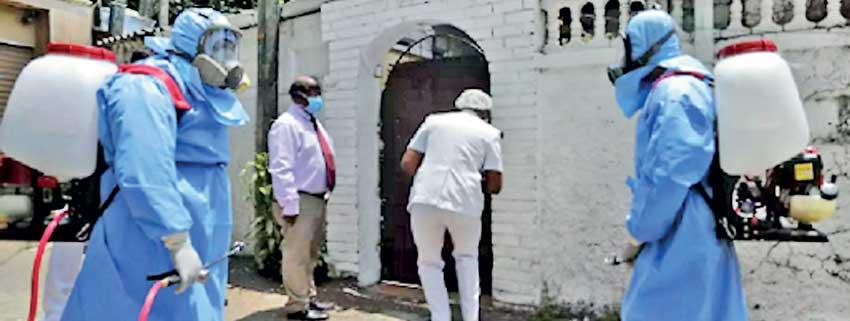12 May 2020 - {{hitsCtrl.values.hits}}

Sri Lanka has thus far seen very low fatality numbers because of rigorous contact tracing and quarantining measures
 People all over the world are increasingly standing in solidarity with one another to beat the virus. The COVID-19 pandemic will inevitably wreak its worst on the people, communities, and countries that are least able to withstand the shock or to provide a defence against it.
People all over the world are increasingly standing in solidarity with one another to beat the virus. The COVID-19 pandemic will inevitably wreak its worst on the people, communities, and countries that are least able to withstand the shock or to provide a defence against it.
The world’s epidemiologists are collaborating across borders to track the data as the virus moves around the globe freely. While they can’t predict when this will end, as Bill Gates noted recently, without a vaccine life will not return to normal. The vaccine the world needs will come early than expected, if only the world leaders unite and speak in one voice.
Faster response
Currently the tactics needed to respond faster than the virus are being deployed in individual countries, states, regions, towns and communities. But we need to bring this response all together so that the world is using monitoring; mitigation; orderly supply chains for protective gear and medical supplies; and support from and for the world’s healthcare workers.
This means reviving the multilateralism that many world leaders have squandered or ignored over the past few years and working together as one world and making decisions based on science and not on political lines.
The coronavirus now is bigger than all leaders put together and it feeds on partisanship divides. As Bill Gates has correctly pointed out in an interview, global action and leadership is needed to win. Every leader in every country must focus first and foremost on their citizens, but must understand that if the virus is allowed to move around unchecked in some countries or regions, it will move back and also resurge in others.
Economic effects
So far, the response to the coronavirus has been primarily national or even local. The lack of a coordinated international response accelerated the global spread of the virus. An internationally-coordinated closure of borders and travel restrictions would have enabled a controlled return of travellers while ensuring medical testing and preventing economic losses.
Unfortunately, unilateral travel restrictions on short notice led to increased travelling without preventing the spread of the virus.
For example, The Champions League soccer match in Northern Italy should never have taken place in order to contain the spread of the virus in that region. While it is understandable that governments are now doing everything they can to mitigate the economic effects of the crisis domestically, such measures need to be internationally coordinated to prevent the growing economic inequality.
Sri Lanka
Economists forecast that lower middle income countries will be hit the hardest by the crisis. For example the sectors identified to suffer the most during this time are apparel, agriculture, manufacturing exports, tourism, and the retail and consumer sector, with small and medium scale enterprises being the worst affected.
The Government of Sri Lanka has given the highest priority in this crisis to ensure the infection is contained and therefore for public health priorities of COVID-19. Sri Lanka has thus far seen very low fatality numbers because of rigorous contact tracing and quarantining measures.
The Sri Lankan government will be required to structure effective fiscal stimulus packages while navigating a very narrow fiscal space, once the economy opens up again.
A lot will depend on Dr. P.B. Jayasundera, Secretary to the President – a very competent and seasoned economist, who played a pivotal role in managing the economy during the war – to adequately invest in the country’s public health system to flatten the curve and fast-track its efforts to minimise economic losses. Because keeping society and the economy on total lockdown for too long would have serious negative consequences.
Way forward
The current crisis would force all countries to make themselves less vulnerable in the future, and this would lead to tighter supply chains and a greater emphasis on self-sufficiency in food and energy.
Fighting global pandemics of this magnitude requires global cooperation to cushion the potentially-devastating impact it may have on vulnerable people and economies. Some of the developed countries do not still understand that challenge.
Let us hope that as we emerge out from this crisis with the perspective that global cooperation is even more important than we thought it to be.
It can’t just be limited to meeting-driven forums.
To achieve globalisation we have to make global cooperation more resilient and relevant, because COVID-19 is now much more than a medical exigency; it has the potential to create devastating social, economic and political crises that can leave deep scars forever for both the developed and developing world.
(The writer is a thought leader)
26 Dec 2024 16 minute ago
25 Dec 2024 25 Dec 2024
25 Dec 2024 25 Dec 2024
25 Dec 2024 25 Dec 2024